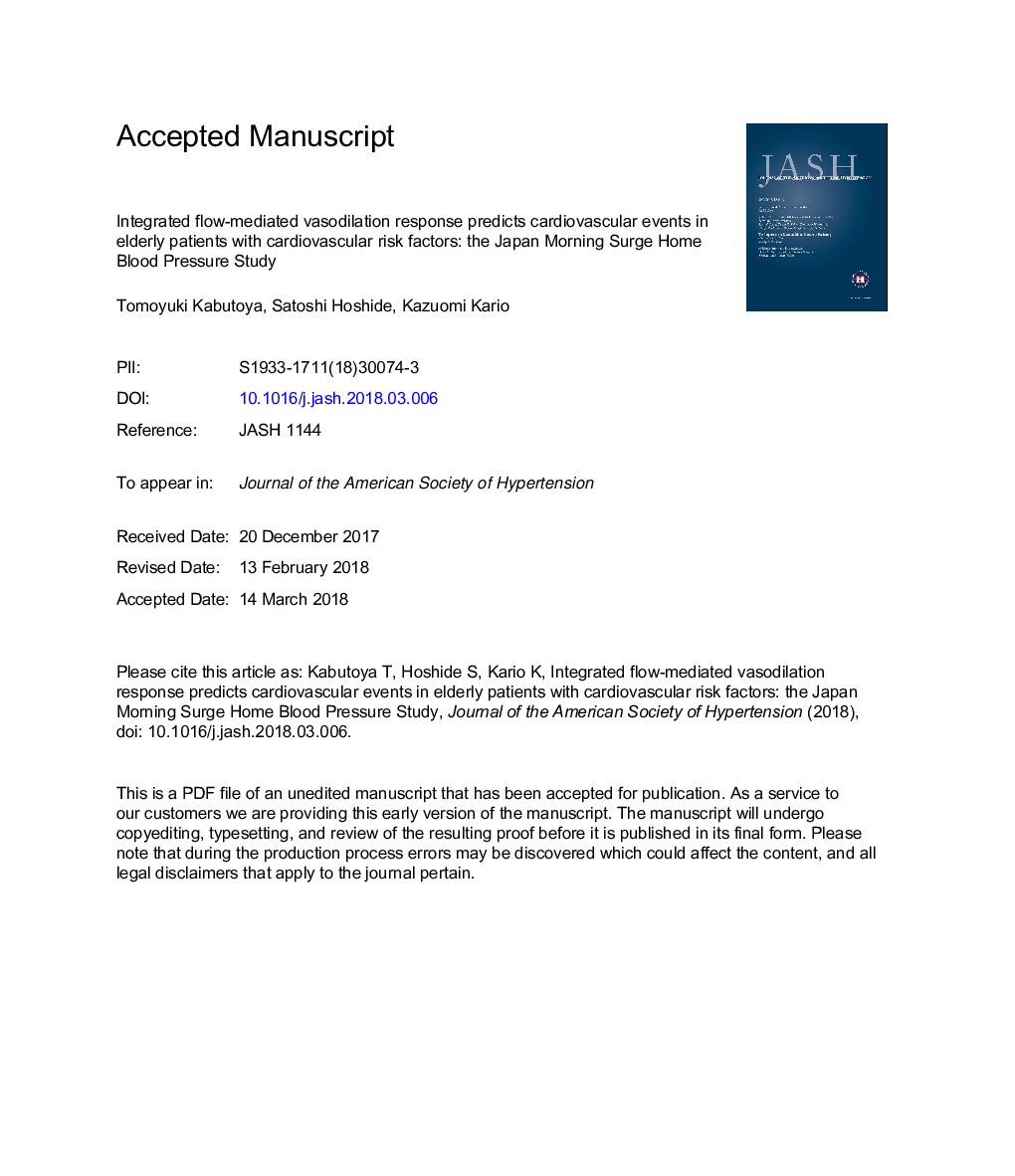| Article ID | Journal | Published Year | Pages | File Type |
|---|---|---|---|---|
| 8667453 | Journal of the American Society of Hypertension | 2018 | 26 Pages |
Abstract
The integrated flow-mediated vasodilation (FMD) response has been associated with cardiovascular (CV) risk factors, but the association between the integrated FMD response and subsequent CV events has been unclear. We enrolled 555 patients who had at least one CV risk factor (hypertension, dyslipidemia, diabetes, or smoking). We measured the peak percentage change in diameter (ÎFMD), and integrated FMD response calculated as the area under the dilation curve over a 120-second dilation period (FMD-AUC120). Elderly patients (age ⥠65 years, N = 270) in the lowest tertile of FMD-AUC120 (FMD-AUC120 < 5.6) had a higher rate of CV events compared with those in the two higher tertiles (FMD-AUC120 ⥠5.6) (log rank 4.15, P = .041). The association remained significant after adjusting for covariates (hazard ratio 3.84, P = .007). In the 285 middle-aged patients (age < 65 years), the CV event rates were similar between patients in the lowest tertile and those in the two higher tertiles of FMD-AUC120 (log rank 0.39, P = .53). The CV event rates were similar between patients in the lowest tertile and those in the two higher tertiles of ÎFMD in elderly and middle-aged patient groups. In conclusion, integrated flow-mediated vasodilation response, but not ÎFMD, predicted CV events in elderly patients with CV risk factors.
Related Topics
Life Sciences
Neuroscience
Endocrine and Autonomic Systems
Authors
Tomoyuki MD, PhD, Satoshi MD, PhD, Kazuomi MD, PhD,
